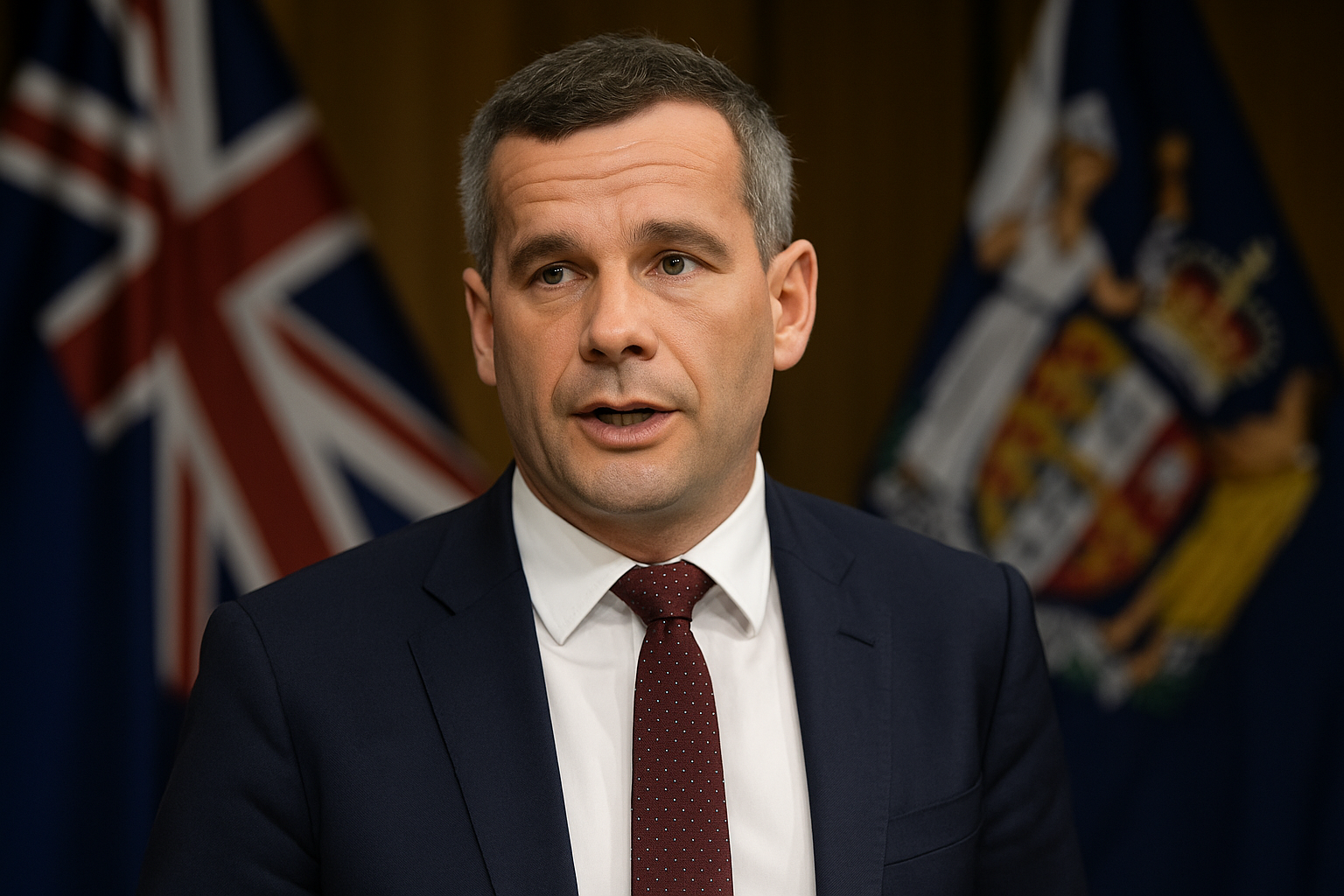NZ Speeds Up Overseas Investment Processing, Cuts Times by 39% Under New Directive
Seymour's reform efforts aim to reposition overseas investment as a key pillar for economic revitalization, innovation, and job creation in New Zealand.

- Country:
- New Zealand
New Zealand is sending a clear message to global investors: the country is open for business and serious about making overseas investment more efficient and attractive. Associate Minister of Finance David Seymour has revealed significant progress following his directive to accelerate decision-making under the Overseas Investment Act. In a major turnaround, consent processing times have been slashed by 39%, with 88% of applications now decided in half the statutory timeframe.
This shift in performance is being lauded as a win for economic competitiveness, marking a strategic reorientation toward risk-based processing and more welcoming policies for global capital.
Ministerial Directive Sparks Performance Shift
In 2023, David Seymour issued a Ministerial directive letter to Land Information New Zealand (LINZ)—the regulator for overseas investment—setting out explicit expectations for faster processing times. The letter mandated that 80% of applications should be completed in half the legally permitted time.
Now, as of the 2024–25 financial year, LINZ is exceeding that target, processing 88% of applications in that reduced timeframe, cutting the average processing time from 71 to just 28 working days.
“Since delegating most decision-making to LINZ and directing officials to focus on realising the benefits of overseas investment, there has been a significant improvement in processing times,” Seymour stated.
Risk-Based Approach Unlocks Efficiency
A large part of the success is attributed to a new risk-based assessment model adopted by LINZ. By prioritizing scrutiny for high-risk transactions and streamlining low-risk applications, LINZ has managed to significantly reduce unnecessary red tape.
This model recognizes that many applications—especially those involving low-sensitivity commercial land or passive investments—pose minimal risk and can be cleared without prolonged delays.
“Feedback from investors has been overwhelmingly positive,” Seymour noted. “They have welcomed the changes to make the application process more efficient, while still giving the right level of scrutiny to high-risk transactions.”
Trends in Application Volumes
From 1 July 2024 to 19 June 2025, LINZ received 122 consent applications, down from 146 in the previous year (excluding "home to live in" applications). The drop is primarily attributed to a slump in residential land development applications due to unfavorable property market conditions.
Despite the dip, Seymour remains optimistic:
“I expect these numbers to bounce back with the rise of the property market.”
Overseas Investment Bill to Reform the Regime
Coinciding with the faster processing benchmarks is the introduction of the Overseas Investment (National Interest Test and Other Matters) Amendment Bill, which had its first reading this week. The Bill proposes a major overhaul of how foreign investments are screened:
-
Simplified and consolidated screening for less sensitive assets.
-
A modified national interest test will replace the current “benefit to New Zealand” and “investor” tests for most categories.
-
The regulator will be able to triage low-risk transactions quickly.
-
For higher-risk deals, tools such as conditions, blocking powers, or Ministerial oversight will remain available.
“New Zealand has been turning away opportunities for growth for too long,” Seymour argued. “Having one of the most restrictive overseas investment regimes in the OECD means we’ve paid the price in lost opportunities, lower productivity, and stagnant wages. This Bill is about reversing that.”
The current rules will still apply for sensitive areas like farmland and fishing quota, but everything else—except for residential land—will be subject to a 15-day processing goal, unless flagged for national interest concerns.
Reframing Investment for Economic Growth
Seymour's reform efforts aim to reposition overseas investment as a key pillar for economic revitalization, innovation, and job creation in New Zealand.
“International investment is critical to ensuring economic growth. It provides access to capital and technology that grows New Zealand businesses, enhances productivity, and supports high paying jobs.”
With global investors now facing less bureaucracy, faster timelines, and more transparency, New Zealand is hoping to boost its competitiveness and reassert itself as an attractive destination for international capital.
The Government’s reforms under David Seymour’s leadership represent a strategic pivot in how New Zealand balances national interest with economic opportunity. Faster processing times, clearer legislation, and a pragmatic screening process are expected to revive investor confidence, foster business growth, and contribute to a stronger, more resilient economy.
For more details, the full Bill can be accessed at: Overseas Investment (National Interest Test and Other Matters) Amendment Bill 171-1 (2025), Government Bill Contents – New Zealand Legislation










